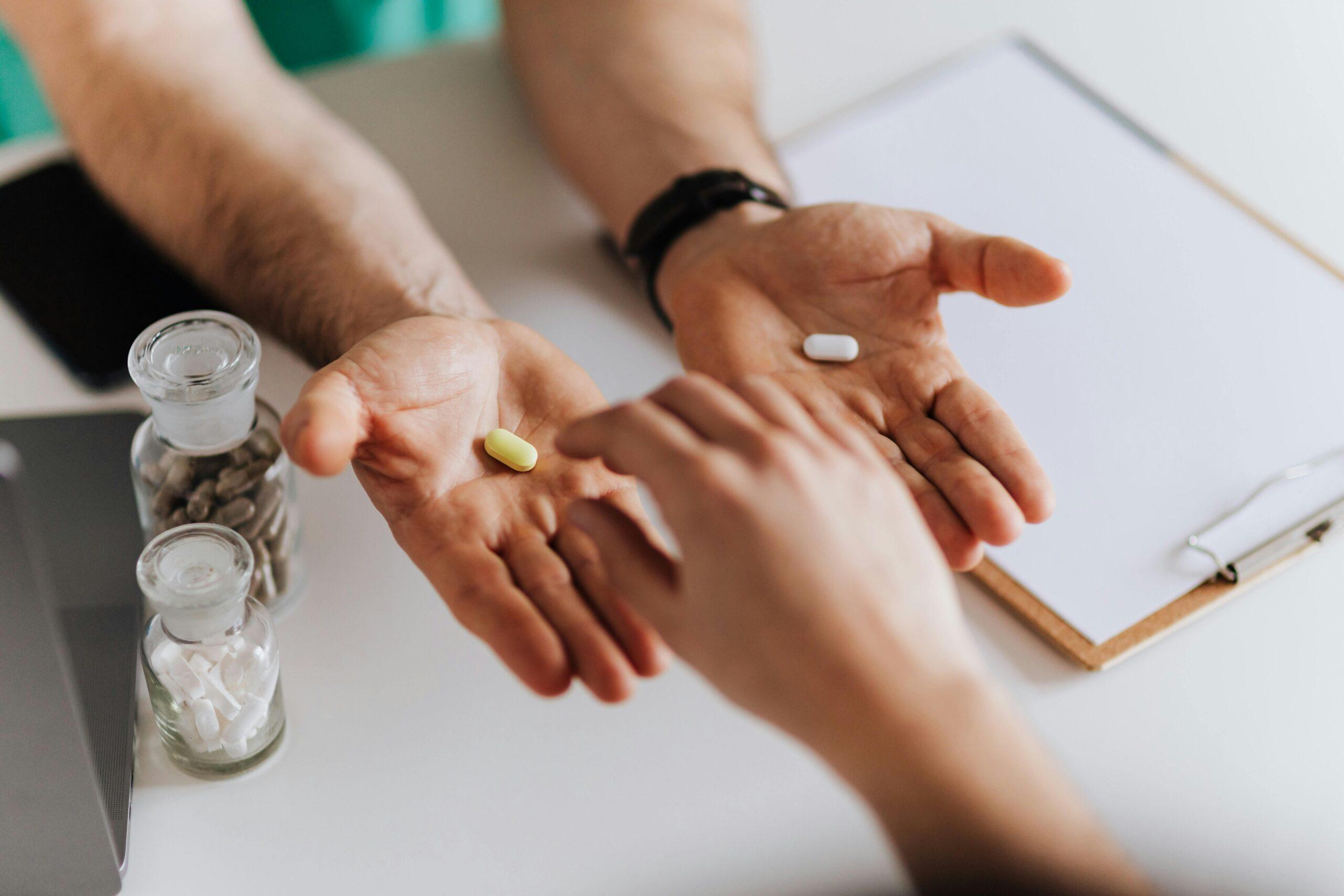The Role of Intensive Outpatient Recovery in Long-Term Sobriety
Discover how intensive outpatient recovery can be your lifeline to long-term sobriety, offering flexibility and support without putting your life on hold.
Remember those old, winding country roads? The ones that twist and turn, full of unexpected bumps and hidden curves? That’s often what the journey to sobriety feels like. It’s rarely straightforward, and it’s certainly never easy.
Inpatient treatment, with its total separation from the familiar comforts of home, can seem like a mountain too high to climb. But there’s another way—a path that winds alongside your life, offering support and structure without the drastic upheaval. It’s called Intensive Outpatient Recovery (IOP), and it might just be the lifeline you’ve been searching for.
Life doesn’t stop when you decide to get better. There are jobs to keep, families to care for, and responsibilities that can’t just be paused. That’s how Intensive Outpatient Programs (IOPs) can help you.
Understanding Intensive Outpatient Recovery

Intensive outpatient recovery represents a sophisticated approach to addiction treatment that combines rigorous therapeutic support with the flexibility to maintain daily life commitments. Unlike residential treatment, where individuals temporarily step away from their regular lives, IOPs provide structured treatment several days per week while allowing participants to return home each evening.
A Program That Works with Your Life
Intensive Outpatient Programs bridge the gap between inpatient care and standard outpatient therapy. They’re like the middle path: more structured than outpatient therapy but without the full-time commitment of inpatient care.
Instead of staying at a facility, you live at home and attend scheduled sessions throughout the week. This lets you practice what you learn in real-life settings—whether that’s managing stress at work or navigating social situations without turning to old habits.
Why Structure Matters
Addiction thrives in chaos. IOPs help replace that chaos with routine. With regular therapy sessions, group meetings, and check-ins, you’re not just learning about recovery—you’re living it. Think of IOP as a carefully orchestrated symphony of support, where different treatment elements work in harmony. Participants typically attend sessions 3-5 days per week, for several hours each day, receiving a combination of group therapy, individual counseling, and educational sessions. This level of care sits between traditional outpatient services and residential treatment, offering many of the benefits of intensive treatment while maintaining crucial connections to work, family, and community.
The evolution of IOP in addiction treatment reflects our growing understanding of recovery needs. Traditional residential treatment, while valuable for many, doesn’t always align with modern life’s demands. IOPs emerged as a response to this gap, providing intensive therapeutic support while acknowledging the importance of maintaining life stability.
The Real Advantages of IOP for Long-Term Sobriety
Picture learning to ride a bicycle with training wheels – that’s what makes IOP so powerful. Instead of being in a protected bubble, you’re learning to navigate real life with a safety net of support. Every morning brings new opportunities to practice what you’ve learned in treatment, whether it’s handling a stressful work meeting or saying “no” to happy hour invitations. And the best part? Your treatment team is right there with you, helping you adjust your balance and build confidence with each passing day.
It’s your personal recovery workshop, where you’re not just reading the instruction manual – you’re actually building something meaningful. You might start your day in a therapy session, learning why certain situations trigger cravings, then head straight to work where you can put those insights into action. When challenges arise, you don’t have to wait days to discuss them; you can bring them right back to your next session, fresh and real.
The practical side of recovery matters too, especially when it comes to your wallet. Many people find themselves wondering, “Can I really afford to get help?” With IOP, you’re looking at a fraction of the cost of residential treatment. Plus, you can keep your job, pay your bills, and maintain your financial responsibilities while getting the support you need. It’s like being able to repair your ship while staying afloat, rather than having to dock it for months.
This balance of treatment and real life creates a natural bridge to long-term sobriety. Rather than experiencing the shock of returning to “normal life” after being away, you’re already living it, just with extra support. You’ll learn how to handle morning traffic without reaching for a drink, how to manage family dynamics while staying centered, and how to enjoy social events without substances. Each small victory builds your confidence, showing you that not only is recovery possible – it’s sustainable in your everyday world.
Building a Foundation Through Structure
Success in recovery often hinges on establishing healthy routines and structure. IOPs excel at helping participants develop these crucial patterns while maintaining flexibility. A typical week in an IOP might include:
- Morning medication management and check-in sessions focused on daily challenges
- Afternoon group therapy addressing specific recovery skills and coping strategies
- Evening support groups or family therapy sessions for building support networks
- Regular drug screening to maintain accountability and track progress
- Skill-building workshops covering topics from stress management to relapse prevention
This framework provides the scaffolding necessary to build a sustainable recovery while allowing space for personal responsibilities. The structure helps participants develop time management skills and healthy routines that support long-term sobriety.
Creating Your Recovery Network
Recovery thrives in the community, and IOPs excel at fostering meaningful connections. Through group therapy sessions, participants meet others walking similar paths, creating bonds that often extend beyond the treatment setting. These peer relationships provide understanding and support that family members, despite their best intentions, might not be able to offer.
Recovery isn’t just a solo journey – it ripples through the entire family. In IOP, families find themselves growing and healing alongside their loved ones, learning a new dance of support and understanding. It’s like learning to walk together again, with each family member finding their footing in this new landscape of recovery.
Family therapy sessions become a place of transformation. The father who used to lecture now learns to listen with an open heart. The sister who walked on eggshells discovers her voice, learning to share her feelings without fear. Old patterns of blame and shame slowly dissolve, replaced by genuine understanding and compassion.
In educational workshops, families experience lightbulb moments that change everything. A father who once believed addiction was simply a choice sits quietly, tears in his eyes, as he finally understands the complex web of factors that led to his son’s struggles. These moments of clarity heal old wounds and build bridges of understanding that addiction had once burned.
The support groups become a haven where family members can finally exhale. Here, a wife can admit how exhausting it is to check her husband’s breath every evening, and receive knowing nods instead of judgment. A brother can confess his anger at having to be the “responsible one” and find others who truly get it. These shared experiences weave a tapestry of support that extends far beyond the group room.
Through practical skills training, families learn the art of healthy support. They discover that love doesn’t mean solving every problem, and that setting boundaries isn’t the same as giving up. A mother learns she can love her daughter without answering every 3 AM phone call. A spouse realizes that supporting recovery doesn’t mean sacrificing their own peace of mind. Day by day, they build a new normal that supports recovery while preserving the whole family’s wellbeing.
The Science of Success in IOP Treatment
Research consistently shows that intensive outpatient programs can be as effective as residential treatment for many individuals, particularly those with stable home environments and strong support systems. The key lies in the program’s ability to address both the addiction itself and any co-occurring mental health conditions that might fuel substance use.
Evidence-based therapies form the cornerstone of effective IOP treatment. These typically include:
- Cognitive Behavioral Therapy (CBT) to address thought patterns and behaviors
- Dialectical Behavior Therapy (DBT) for emotional regulation
- Motivational Enhancement Therapy to strengthen recovery commitment
- Group therapy for peer support and skill development
- Trauma-informed care approaches
- Holistic wellness practices
The Role of Comprehensive Care in IOP
Successful IOP programs recognize that addiction recovery requires a multifaceted approach. Beyond traditional therapy, comprehensive care might include:
Nutritional Support and Wellness
Understanding the role of physical health in recovery, many programs incorporate nutritional education and wellness activities. This might include:
- Education about proper nutrition during recovery
- Exercise and movement therapy
- Stress management techniques
- Sleep hygiene practices
Mental Health Integration
The relationship between mental health and addiction intertwines like threads in a complex tapestry. For many people, anxiety or depression may have first led them to seek relief in substances, while others found their mental health declining as addiction took hold. IOP programs recognize this delicate relationship, offering a nuanced approach to healing both conditions simultaneously.
When needed, medication management becomes part of the healing journey. Working closely with healthcare providers, participants find the right balance of medications to support their mental health while maintaining their sobriety. It’s like finding the right combination to unlock a door – one that opens to clearer thinking and emotional stability.
The program weaves specific therapeutic interventions throughout treatment, addressing both addiction and mental health challenges. Someone might learn breathing techniques to manage anxiety while also developing strategies to handle substance cravings. These skills complement each other, creating a stronger foundation for lasting recovery.
Crisis management planning serves as a safety net, ensuring that participants know exactly what to do when mental health challenges threaten their sobriety. They develop personalized action plans, identifying trusted contacts and specific steps to take during difficult moments. This preparation provides peace of mind, knowing they have tools and support ready when they need them most.
Life Skills Development
Practical skills weave the fabric of sustainable recovery, turning abstract concepts into tangible tools for daily living. Think about James, who found himself overwhelmed not just by sobriety, but by years of neglected life skills. Like many in recovery, he needed more than just addiction treatment – he needed to rebuild the foundation of his daily life.
Financial management education becomes a lifeline for many participants. They learn to navigate the sometimes turbulent waters of personal finance, moving from the chaos of addiction-driven spending to thoughtful budgeting and planning. For some, it’s the first time they’ve truly understood how to manage a bank account or plan for future expenses. These skills prove invaluable in maintaining stability, reducing stress, and supporting long-term recovery.
Career development takes on special significance in recovery. Participants work on rebuilding their professional lives, whether that means returning to a previous career or charting an entirely new course. Through resume writing workshops and interview practice sessions, they regain confidence in their professional abilities. Many discover that the determination they’re showing in recovery translates perfectly into workplace success.
Communication skills emerge as a cornerstone of healthy living. In group sessions, participants practice expressing their needs clearly and listening actively to others. These skills ripple outward, improving relationships with family members, coworkers, and friends. Simple conversations that once seemed impossible become manageable, even comfortable.
Time management strategies help bring structure to lives that may have lacked it for years. Participants learn to balance their recovery commitments with work, family, and personal time. They discover that managing their schedule isn’t just about being organized – it’s about creating space for all the meaningful aspects of a sober life while keeping recovery at the center.
Navigating Challenges in IOP
While IOP offers many advantages, it also presents unique challenges that participants must navigate. Common challenges include:
Managing Triggers in Daily Life
Living at home while in treatment means encountering potential triggers regularly. IOP programs help participants:
- Identify personal triggers and high-risk situations
- Develop specific coping strategies
- Create emergency response plans
- Build a support network for difficult moments
Balancing Responsibilities
Maintaining work, family, and recovery commitments requires careful balance. Programs support this through:
- Flexible scheduling options
- Time management training
- Stress management techniques
- Family support services
Maintaining Motivation
Staying committed to recovery while managing daily life demands consistent motivation. Programs address this through:
- Regular progress assessments
- Celebration of milestones
- Peer support connections
- Goal-setting activities
Looking Toward Long-Term Success
The path to lasting sobriety resembles a marathon more than a sprint. IOP programs recognize this by incorporating comprehensive relapse prevention strategies and planning for step-down care. As participants progress, treatment intensity gradually decreases, allowing for a smooth transition to independent recovery while maintaining support connections.
Key components of long-term success planning include:
Aftercare Planning
- Development of ongoing support strategies
- Connection with community resources
- Establishment of long-term recovery goals
- Creation of maintenance plans
Relapse Prevention
- Identification of personal risk factors
- Development of coping strategies
- Creation of emergency response plans
- Building of support networks
Life Integration
- Career development support
- Relationship healing strategies
- Community engagement opportunities
- Healthy lifestyle development
The Future of Recovery Support
As addiction treatment evolves, IOP programs continue to incorporate new approaches and technologies. Modern programs might include:
- Telehealth options for increased accessibility
- Mobile apps for recovery support
- Virtual reality therapy for skill practice
- Digital tracking tools for progress monitoring
Making the Choice for Recovery
Choosing the right treatment approach requires careful consideration of personal circumstances, responsibilities, and recovery needs. IOP offers a powerful combination of:
- Professional support and evidence-based treatment
- Flexibility to maintain life commitments
- Real-world skill application
- Community and family involvement
- Comprehensive care approaches
For those considering their treatment options, intensive outpatient recovery offers a powerful combination of professional support, peer connection, and real-world application. It’s an approach that recognizes both the complexity of addiction and the importance of maintaining life’s meaningful connections during recovery.
Why Skypoint Recovery?
If you’re ready to explore how intensive outpatient treatment could support your recovery journey, Skypoint Recovery in Akron, Ohio, offers comprehensive IOP programs designed to meet you where you are.
Our experienced team understands the challenges of addiction and provides personalized support to help you achieve lasting sobriety. Take the first step toward your recovery by calling 855-612-3488 or filling out our online form. Your path to lasting freedom starts here.



